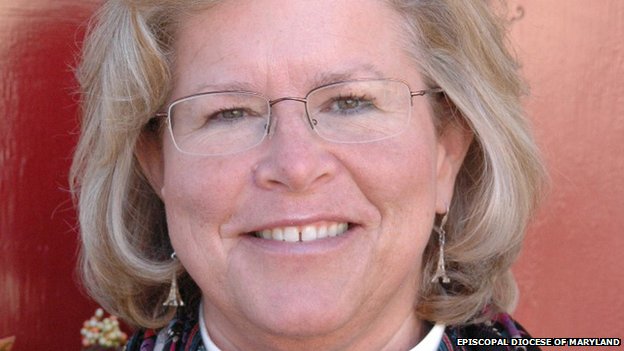Heather Cook, bishop jailed for drunk driving, applies for home detention
Heather Cook, the former Episcopal Church bishop jailed for drink driving after a hit-and-run crash killed a cyclist in 2014, has applied to serve the rest of her sentence in home detention.
Cook is serving a seven-year prison sentence at the Maryland Correctional Institution for Women in Jessup. She pleaded guilty in 2015 to charges of vehicular manslaughter, drunken driving, driving while texting and leaving the scene of an accident in the crash that killed 41-year-old Thomas Palermo.

'Ms Cook is asking for home detention, she is not as yet under consideration for home detention,' said Gerard Shields, a spokesman for the Maryland Department of Public Safety and Correctional Services, according to the Baltimore Brew.
Inmates can be considered for home detention within 18 months of release, which for Cook could be as early as September 2019, Shields added, saying a 'very tedious process' would now begin.
'We would have to inspect her home plan, where she would be staying, check her sponsor, check her recovery plan – it's like a parole hearing,' he said.
Palermo's family strongly oppose the request and Alisa Rock, the sister of Palermo's widow, called it 'unconscionable'.
'Not even a year ago, Maryland Parole Commission Chair David Blumberg stood in front of a throng of people and spoke about how Cook took no responsibility for her actions and showed a complete lack of remorse during her parole hearing,' Rock said in a statement. 'Yet now she's asking to be considered for home detention.
'I can only speak for myself. It's unconscionable. I oppose home detention. It would just create more trauma for people that I love.'
Cook's case has mired The Episcopal Church – the official Anglican church in the US – in controversy after it emerged she had a previous drink driving conviction which the bishops' appointments panel knew about before promoting her.
A report, commissioned by The Episcopal Church's bishops, found it remains in a 'system of denial and helplessness' over alcohol abuse among its senior clergy. It found 'the ecclesial structure and polity of our church proved to contribute negatively to the situation'.
'Clericalism, a misunderstanding of hierarchy, the canonical autonomy of parishes and dioceses, and a polity that hinders the enforcement of expectations all contributed to inactivity by responsible persons and bodies,' the report, published in March, said.
'The commission has discovered that in many instances, church polity has impeded the ability of the church to intervene, assess and treat impaired people and care for the injured community.'
The commission exposed a fear of exposure to liability, friendships between church officials, the autonomy of dioceses and a 'culture of forgiveness' as reasons for why there was a failure to address alcohol abuse among clergy.











